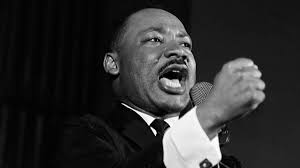Martin Luther King Jr. was a gifted orator. He was a deep thinker. He was highly intelligent.
Even as a young man, he was a wise man.
In researching King, I came across an article entitled “The Purpose of Education” he wrote for the Maroon Tiger, the campus newspaper of Morehouse College.
I was going to share pieces of it, but realized it was much more valuable to share it in its entirety.
As I engage in the so-called “bull sessions” around and about the school, I too often find that most college men have a misconception of the purpose of education. Most of the “brethren” think that education should equip them with the proper instruments of exploitation so that they can forever trample over the masses. Still others think that education should furnish them with noble ends rather than means to an end.
It seems to me that education has a two-fold function to perform in the life of man and in society: the one is utility and the other is culture. Education must enable a man to become more efficient, to achieve with increasing facility the legitimate goals of his life.
Education must also train one for quick, resolute and effective thinking. To think incisively and to think for one’s self is very difficult. We are prone to let our mental life become invaded by legions of half truths, prejudices, and propaganda. At this point, I often wonder whether or not education is fulfilling its purpose. A great majority of the so-called educated people do not think logically and scientifically. Even the press, the classroom, the platform, and the pulpit in many instances do not give us objective and unbiased truths. To save man from the morass of propaganda, in my opinion, is one of the chief aims of education. Education must enable one to sift and weigh evidence, to discern the true from the false, the real from the unreal, and the facts from the fiction.
The function of education, therefore, is to teach one to think intensively and to think critically. But education which stops with efficiency may prove the greatest menace to society. The most dangerous criminal may be the man gifted with reason, but with no morals.
The late Eugene Talmadge, in my opinion, possessed one of the better minds of Georgia, or even America. Moreover, he wore the Phi Beta Kappa key. By all measuring rods, Mr. Talmadge could think critically and intensively; yet he contends that I am an inferior being. Are those the types of men we call educated?
We must remember that intelligence is not enough. Intelligence plus character—that is the goal of true education. The complete education gives one not only power of concentration, but worthy objectives upon which to concentrate. The broad education will, therefore, transmit to one not only the accumulated knowledge of the race but also the accumulated experience of social living.
If we are not careful, our colleges will produce a group of close-minded, unscientific, illogical propagandists, consumed with immoral acts. Be careful, “brethren!” Be careful, teachers!
Those words are as true today as they were in 1947.
In this article, King was talking about the importance and goal of education. He was talking about how to be a good thinker and the importance of being able to think critically.
This is something that’s been on my mind for years, and I imagine it has for you as well.
“We must remember that intelligence is not enough,” he wrote. “Intelligence plus character—that is the goal of true education.”
We’re all familiar with King’s thoughts on character from his famous I Have a Dream speech:
“I have a dream that my four little children will one day live in a nation where they will not be judged by the color of their skin but by the content of their character. I have a dream today.”
What is the content of your character? Have you ever thought about that?
I want to challenge you to think about what it means. Think about the content of your character.
Here’s the definition of character:
The mental and moral qualities distinctive to an individual.
Here are three keys to character from my perspective:
Self-discipline
In order to have a strong character, we must exhibit self-discipline and make our own decisions. We must be in control of our impulses, not the other way around.
Awareness of impact
In our work and our deeds, we must move humanity forward. We must leave the world a better place than we found it.
Personal sovereignty
We are in charge of our decisions. We are responsible for our thinking. Character is developed from free-will, not coercion.
We are awash with information and it’s value has been diminished.
We’re constantly looking for reliable sources of knowledge.
And we’re starving for wisdom. Every ounce of me wishes Martin Luther King Jr. were alive today to help lead us.
My desire is to help lead those I have influence over, and to share what little wisdom I’ve acquired.
My hope is that you’ll do the same in your life.
Pursue truth and think critically. Help those you have influence over do the same.
Work to increase the content of your character.
You can find Dr. King’s article here.
We’ve got three free courses as well: Our Goals Course, Values Course, and our Get Out of Debt course.
Stay up to date by getting our monthly updates.
Check out the LifeBlood podcast.

